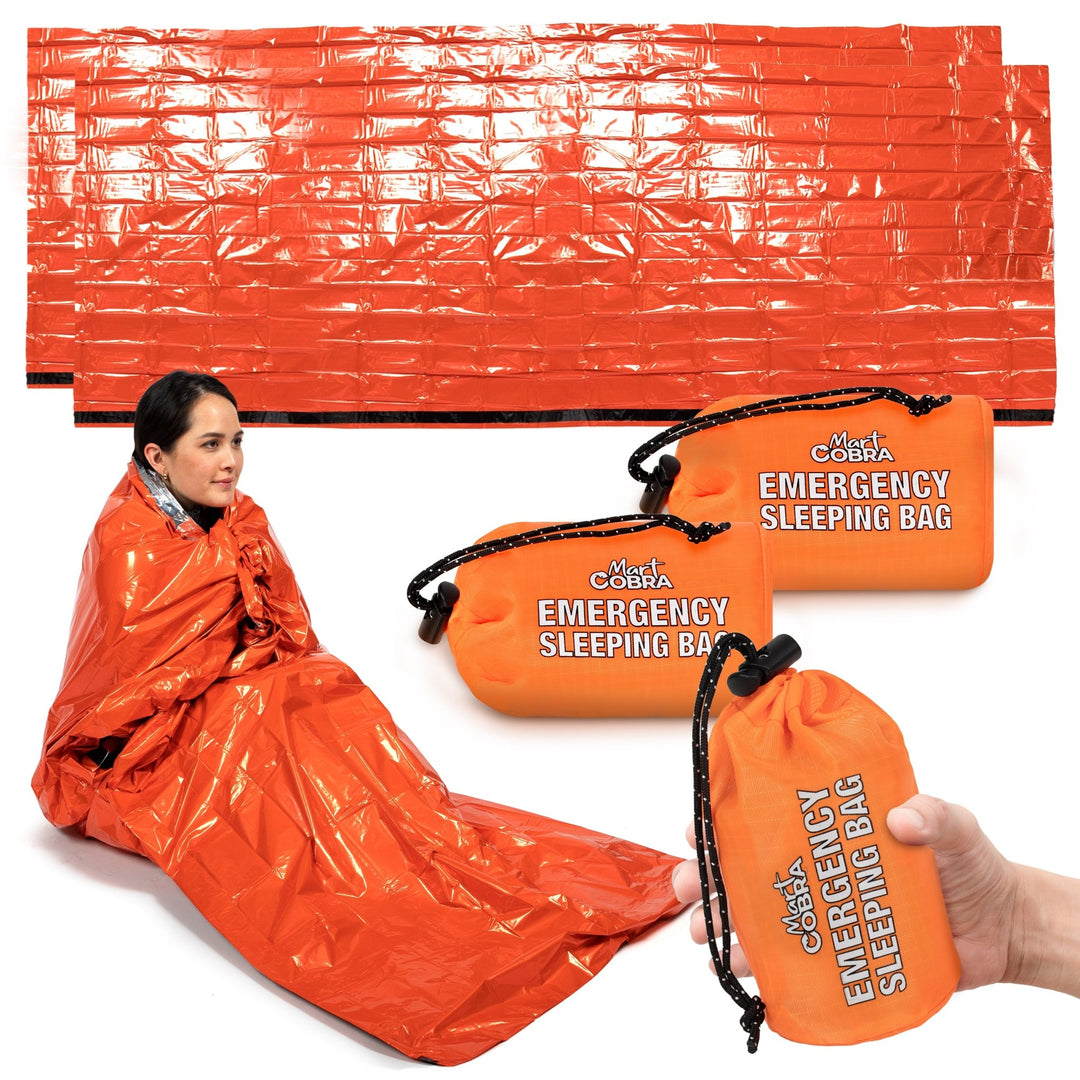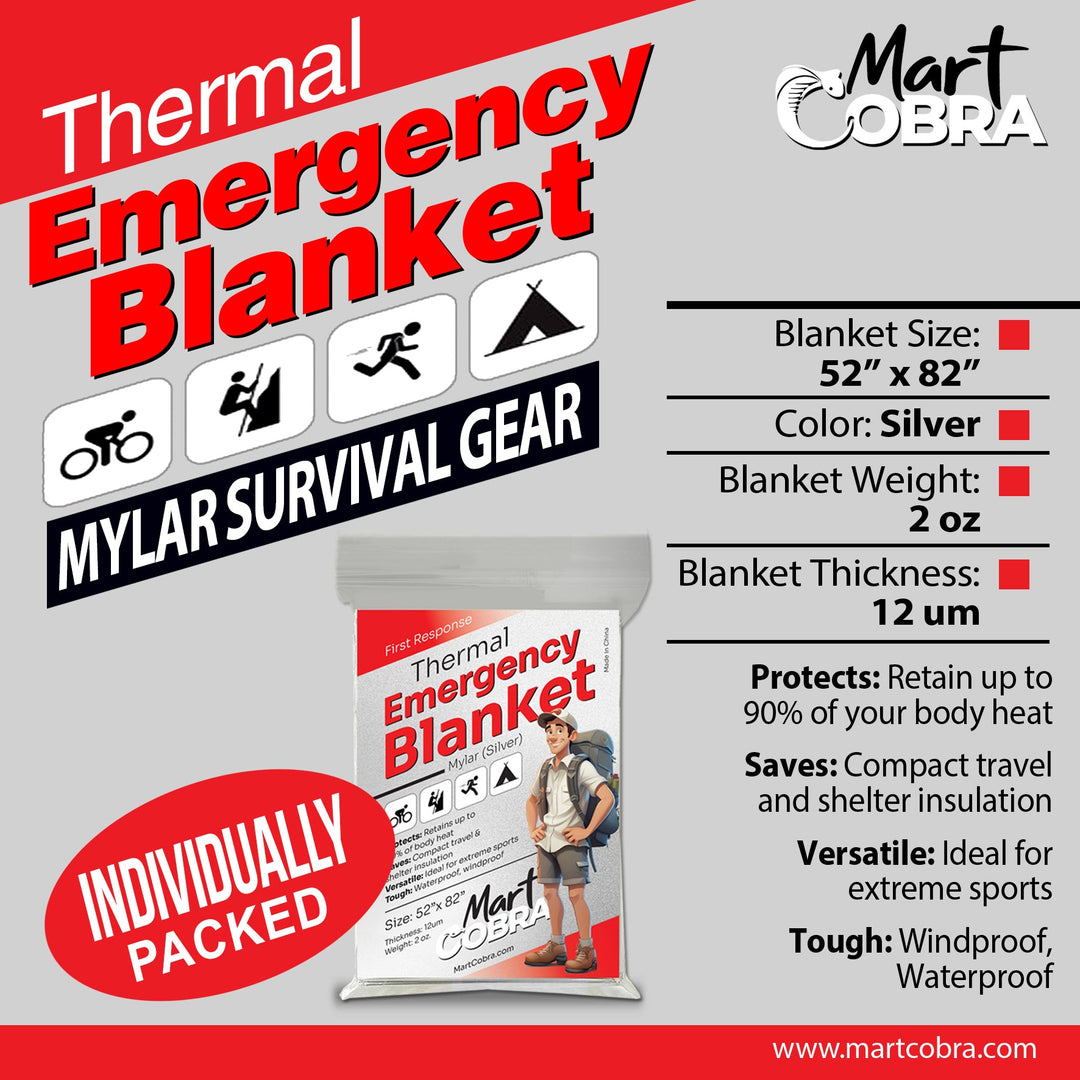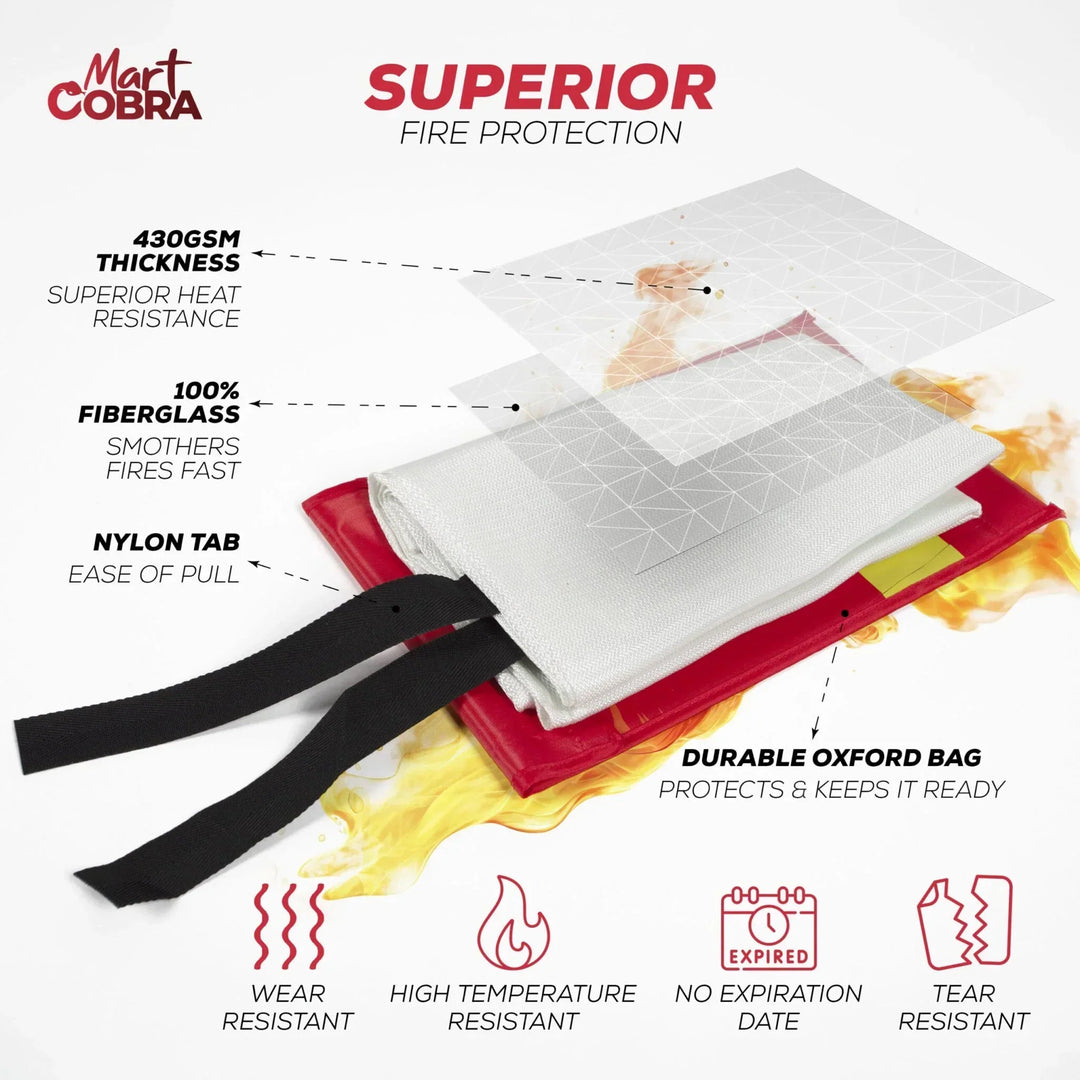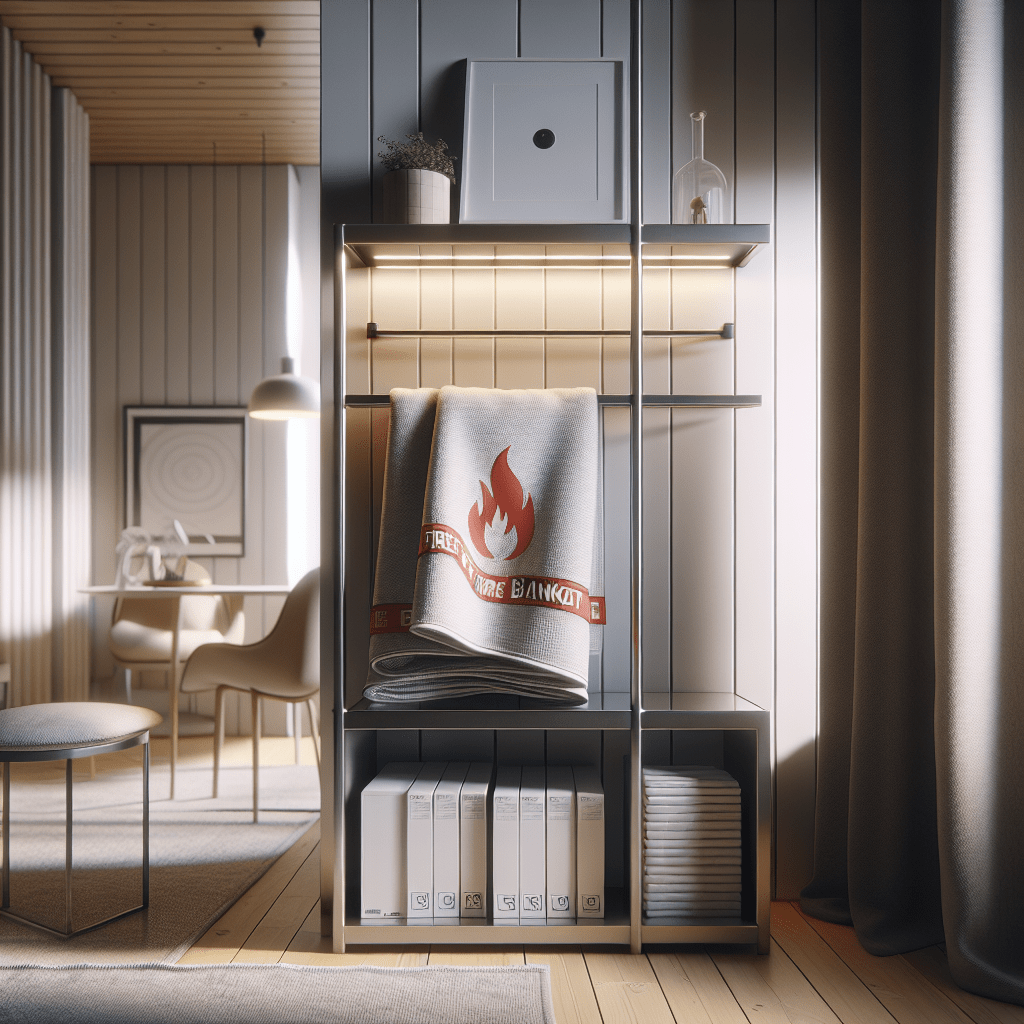Kitchen Fire Safety: How to Prevent and Handle Cooking Fires
The kitchen often serves as the heart of the home. It's where families gather, delicious meals are crafted, and cherished memories are made. But, as the saying goes, where there's smoke, there's fire – and unfortunately, the kitchen is a common site for household fires.
According to the National Fire Protection Association (NFPA), there are approximately 158,400 home structure fires annually. Cooking appliances—particularly ranges or cooktops—are responsible for 53% of these fires, with unattended cooking being the primary cause.
So, what do you do if a kitchen fire breaks out in your home? The key is to act fast and know how to properly extinguish the flames while keeping yourself and your loved ones safe.
Understanding the Types of Kitchen Fires
Here are four common types of cooking-related fires:
Stovetop Fire
Caused by overheated oil or grease in a pan. It can spread quickly and requires swift action.
Oven Fire
Caused by food debris or grease catching fire inside the oven. Best handled by turning off the heat and keeping the oven door shut.
Grease Fire
Happens when oils or fats catch fire. This is one of the most dangerous kitchen fires due to how rapidly it can spread.
Electrical Fire
Occurs from faulty wiring or broken appliances. Never use water—cut power if safe and use a proper extinguisher.
Extinguishing a Kitchen Fire
Stay Calm and Act Quickly
Assess the fire. If it’s small and manageable, proceed. Otherwise, evacuate immediately and call emergency services.
Turn Off the Heat
Remove the pan from the burner or turn it off. In the case of oven fires, switch off the heat and keep the door closed.
Smother with Lid or Baking Sheet
Deprive the fire of oxygen by covering it. This method works well for stovetop fires.
Use Salt or Baking Soda
Sprinkle either over a small grease fire. Never use flour or sugar—they can explode.
Never Use Water on a Grease Fire
It will cause the fire to splatter and spread, potentially burning you or others nearby.
Using a Fire Blanket
A fire blanket can be essential for grease fires.
To use:
- Unfold the blanket.
- Carefully place it over the fire, starting from the edge closest to you.
- Use the blanket to smother the fire completely.
- Wear oven mitts or protective gloves to avoid burns.
For kitchen fires, use fiberglass-based fire blankets designed to withstand high temperatures.
Why Fire Blankets Work
Fire blankets are easy to use, leave no mess, and quickly extinguish small fires before they escalate.
When to Evacuate
If you feel unsafe at any point, evacuate immediately. Alert others in the house and call 911 or emergency services.
Prevention Tips
- Always Stay in the Kitchen: Unattended cooking is the leading cause of fires.
- Use Timers: For long or overnight cooking, use timers or slow cookers.
- Keep Surfaces Clear: Clean grease, crumbs, and debris regularly.
- Keep Flammables Away: Towels, oven mitts, and curtains should be far from heat.
- Wear Safe Clothing: Avoid loose sleeves and scarves.
- Mount a Fire Blanket: Keep one in the kitchen for emergencies.
- Use a Fire Extinguisher: Keep one nearby and ensure it’s rated for grease and electrical fires.
- Maintain Appliances: Fix or replace any faulty cords, outlets, or devices.
Be Prepared
Make sure your smoke detectors are working and that your household has an escape plan. Keep both a fire extinguisher and a fire blanket easily accessible.
After the Fire
- Wait for the area to cool.
- Discard any burned or fire-exposed food.
- Clean your appliances and assess damage.
- Consider professional repairs if needed.
Final Thoughts
Kitchen fires are more common than most people realize. By following prevention strategies and knowing how to respond in case of a fire, you can keep your space safe.
It’s always better to prevent a fire than to fight one. Stay vigilant, stay knowledgeable and prepared, and protect what matters most—your home and loved ones.







